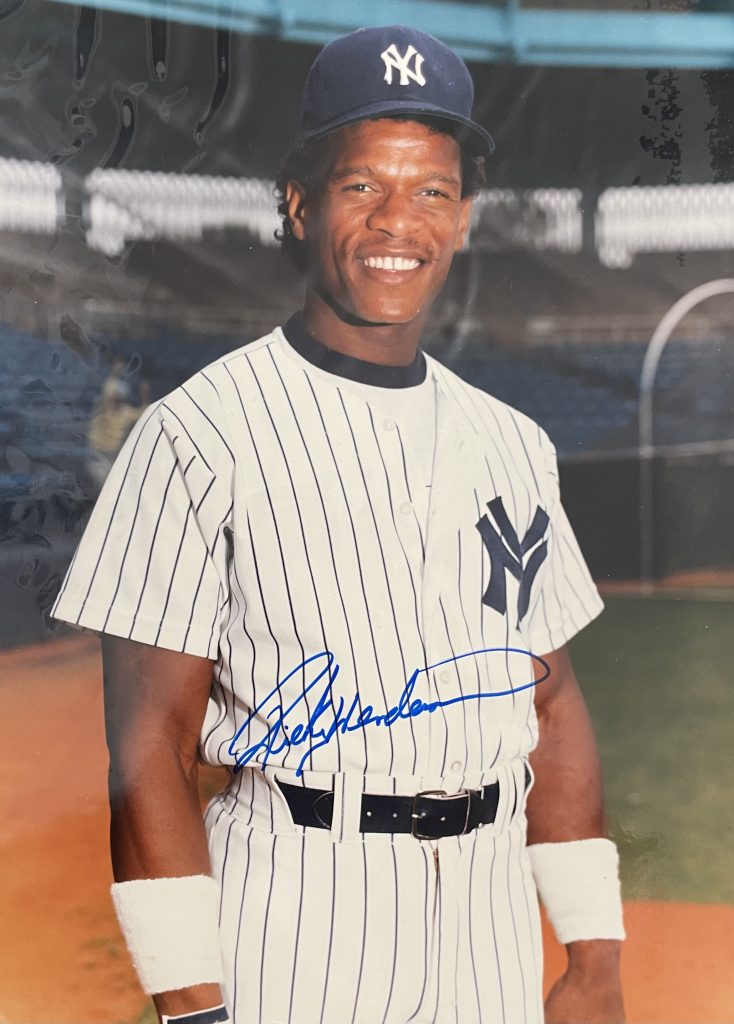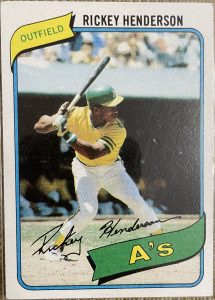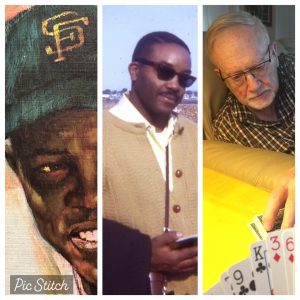
The following two articles by the one and only Seymour Krim appear in his bitchin’ anthology You and Me. They were originally published in the New York Times Book Review and Changes, respectively and appear here with permission from the author’s estate.
Part One: Won’t You Come Home, Jimmy Breslin?
A friend of mine who works for UPI airmailed Jimmy Breslin’s The Gang That Couldn’t Shoot Straight yesterday (two pesetas were due on the postage so I walked half a mile to pick it up at the Calle de Aragon parcel-prison), but he wasted his money. With Beckett’s Malone Dies and Robert Graves’s I, Claudius going at the same time and with work to do, I’m not going to read Jimmy’s “novel” any more than I read Pete Hamill’s two years ago, although I’ve been ashamed to tell Pete so until now. And I respect, in fact, admire both men—and the clipping that my friend sent along saying that Pete was writing a screenplay for a new Frank Perry film on Doc Holliday struck me as just right, a film I wish were already in the can because I know Hamill will do a first-rate job and I’m eager to see it.
In that bit of spot news about the movie lies the whole story.
When Breslin or Hamill write about fact, their imaginations are moored to what they really know, can percipiently sense, take responsibility for in a complete way. Jimmy wrote short stories every day when I was his colleague on the Trib, and they were doubly important to the life of our time because not only did they entertain, engross, make you laugh, even bring an embarrassing snuffle to the nose and that damned fluid to the eye—do everything fiction was traditionally supposed to do—they put you in touch with a whole section of society that fate had heretofore crossed off your list. Breslin made bridges between New York intellectuals, avant-gardists, Leftists, where I find my identification in a general sense, and their natural enemies, cops, goons, insurance agents, horse players, that alien world that lives just over the bridge of one’s own experience.
I was grateful to Jim in a human as well as journalistic sense for being an ambassador of style and tact from one country to another, more than that, as a literary double agent as well as reporter, I felt that what he, Tom Wolfe, Pete, occasionally Alfred G. Aronowitz, Gay Talese for a time, Nicholas von Hoffman (Washington Post), were doing with journalism in the daily press and was the most marvelous breakthrough for a continuing prose excitement since the great days of the American realistic novel. They were using every conceivable technique they could get away with in the tight confines of the daily paper to give an added (actually new) dimension to real people living in a real world who were alienated from each other. The New Journalists were cracking through the alienation by treating it with the compassion and imaginative spinoffs that only the writer can bring to the human situation.
Jimmy didn’t always tell the whole truth any more than Wolfe, Hamill, or anyone else writing for the press with flags flying; I am not that naïve. I myself covered follow-up stories after Jimmy had cut a swath through them; people I interviewed practically wouldn’t speak to me, because our hero Breslin had gotten names wrong, embellished quotes, emotionally sided with one party and not another, given highly colored (no matter how understated his manner) versions of events that psychologically blanched some of the characters involved. But this never bothered me, nor did I ever think it was lying. There is no such thing as the “whole truth” for one person pitting himself against a situation that demands immediate writing; all he can do is absorb the objective panorama, try to know it at belly-height and fairly accurately in the short time allotted to him and then heave everything he personally owns into it.
This is what makes for fine writing, writing that counts—the sensibility of the man underneath gyrating, de-emphasizing, to get his picture. This is what separated Breslin from Wolfe from Schaap from Hamill from Talese, etc., etc., when they were all working on the papers. If all had covered the same story, you would still get five entirely different versions, all true enough, all complementing each other. The final test of the “best reporter,” if there is such a thing, would be in the amount of heart, muscle, skill, humor, and the rest of the virtues that the individual could bring to the crunch.
Breslin, in other words, was a leader in writing about the new journalistic reality because he probably had more of the natural components necessary for this kind of work than the rest; he could not touch the elegance of Wolfe’s imagination or verbal quiver nor was he ever quite as openly two-fisted as Hamill in his prose when Pete had that great year covering the Speck murders in Chicago—Hamill seems to be sent to his descriptive zenith by harsh events—but Breslin had a higher average of success than probably any of his brother strivers, and he never fumbled or froze an important story. But how long can you keep this pace up?
That’s of course, the problem. I don’t fault Breslin for turning his back on daily journalism, because it wears you out, even if you’re built like a brick kiosk, or a Breslin. There comes a point, or seems to, when you start repeating yourself, like Red Smith, who is publishing the same stories today in the International Herald Tribune that I read 10 years ago. But I do fault Breslin for not developing his newspaper work; of the group I’ve named, only Wolfe and Talese have done so, in book form—by writing what Capote has aptly called “nonfiction novels” and what I would term total imaginative truth-prose, instead of copping out in what I’m sure is some meandering fantasy for which Jimmy has apparently even borrowed phrases and characters from his own nonfiction in order to make his highly publicized $250,000 sale to the movies (“I got a quarter of a million bucks out of these two boys,” he told me, chortling on the phone, before I left the country, Breslin loving himself because he thinks he outfoxed the foxes).
Why do people like Breslin, Hamill, Schaap (with his long-romanticized novel about golf, which he used to talk wistfully about) still think the novel is the Higher Form, when they have in their hands a much greater power, that of writing about people with real names with more freedom today than a novelist had with his characters 30 years ago? Why do they write with dignity and importance in their everyday work and then throw it all away (omit the clever Schaap from this: his recent successes are not writing at all) when they wear their literary Sunday clothes? It is hard for me to understand. About 10 years older than they are, I came from the literary environment they seem to want to ape in a superficial way and I went like a homing pigeon to the New Journalism because it was to me an extension of the realistic novel, the final unmasked version of all the name-changed autobiographies and romans a clef that had been the very essence of the United States novel when I came of age. Then, in the 40’s, you could not write freely about the way things really were for a daily newspaper or weekly magazine. You had to disguise it.
Don’t Breslin, Hamill, and the rest of the journalistic novel-yearners appreciate that the novelists who came out of that period, James Jones, Jack Kerouac, James Baldwin, Mary McCarthy, William Styron, Chandler Brossard, John Clellon Holmes—the list is overflowing—were essentially writing the literal truth, which because of custom, libel, publisher’s fears, and the rest had to be hedged? Don’t they see the greater liberation they can achieve and indeed contribution to society they can offer by writing the observable truth unhedged, so that it becomes not only an act of art but a way of bringing literary communication into the gut of society so that it has teeth, effect, becomes a reality that has to be reacted to on other grounds than belles-lettres? Must be dealt with politically, morally, spread out over the whole spectrum?
Whether “the novel” is alive or dead as a form for our time isn’t the point as far as these fellows are concerned. It may very much be alive for remote, introspective, shy, ruminating beings who seize on the germ of an idea and develop it into an imaginative statement because this is where their only hope for significant communication lies; they are cut off and can only come back to the center through a great effort of their imagination. But certainly this isn’t so for a Breslin or a Hamill (“I couldn’t have opened up without Jimmy,” Pete once told me with flat dignity.)
They live in the center of events, thrive on them, take their inspiration from the news, and write with richest feeling and insight about what is already tangible. Their imaginations are extroverted ones—why deny it? Their talent depends up on their involvement with events, their personal participation. Some of the stories they have covered will forever be identified with their personal stamp; the future historian will literally find the name of a Breslin or Hamill or von Hoffman or Ralph J. Gleason (San Francisco Chronicle) inseparable from an event. They are extraordinary recorders of their time along with all those others who don’t write for the daily press (Andrew Kopkind, Joan Didion, Sidney Bernard, Michael Zwerin, Dan Wakefield, Jane O’Reilly, etc.). We have never had their like before, just as we have never had a period that needed writers of the highest caliber involved with the details of daily history.
Why then does Breslin bother to write a novel? The money, obviously, now that he is involved with a shrewd entrepreneur like the literary agent Sterling Lord. But also there must be some misguided sense of literary inferiority, that even a “dumb police reporter from New Jersey [or Queens],” as Al Aronwitz once characterized himself to me, can swing with the Big Boys. And yet there are no Big Boys left in that literary caste sense. Jimmy is never gong to be a J.P. Donleavy or a Thomas Pynchon or a Joe Heller—these men are doing the only thing they can do; they have no options, and what really depresses me is that he is avoiding what he can do probably better than anyone in the country in order to try and do what he can’t do as well as at least 100 others, from Walter Van Tillburg Clark to Jean Stafford.
Breslin is in a new league, actually helped invent it, and for perverse or cynical or prestige reasons wants to play in an old one. Just two or so weeks ago I saw an item in the Observer, out of London, saying Jim was researching in their morgue or reference library a “new novel” on the Trouble in Northern Ireland. So another bomb is on the way! Why doesn’t Breslin do a straight gut book on Ireland if he wants to write one? Why doesn’t he name names, interview his people live, make his deductions while they’re hot? Why is he ducking his responsibilities as a writer and wallowing in luxuries of “fiction” (i.e., contrivance, watered-down fact, scenes without the risk of the real, truth without the pain of exposure) which he has never allowed himself before?
My hunch is that just as Hamill has returned to the Post, where I’m sure he is doing a fierce job, although I can only catch about one copy a month in this city, and just as Pete’s next “imaginative” project is based on the real-dentist-turned-gunslinger Doc Holliday, and not a pure fabrication, so Jimmy must sooner or later come back to his own turf in book form, that combination of fact and personal being that makes reality true and full of marvel as well. If he were to be unlucky and have a success with his new Irish “novel”—a truly patsy form now for any self-respecting truth-hunter except those who have earned it by long-term commitment and necessity—I think we are going to see a musical-comedy Breslin eroding the real one, and the man who was a fullback for a kind of writing bigger than he could envision is going to become just another hustler at the bar of conventional acceptance. Breslin, you bum, come home!

Part Two: The One & Only Million-Dollar Jewboy Caper
It cost me no proud blood to write a passionate, extra-bases review of Jimmy Breslin’s World Without End, Amen for the Chicago Sun-Times and then to crib my own words and sock the message even harder in the San Juan Star so that all the heavy-drinking statesiders down here (where I’m teaching) could see the dark star of Breslin’s talent in the bottom of the bottle. I wanted to alert people everywhere that Jimmy the non-Greek was writing better than ever, that the words sizzled and struck out at you like grease being tormented on a griddle, that line for line and play by play he was a New York Ace who had come through with a super-bitch of a performance. And I can use the word “performance” easily and unself-consciously in telling you about it, even though the ads for his book have been carrying a tagline also calling it a “dynamite performance,” because I knocked off the original lyrics for the Sun-Times. Those two selling words in the ad came from me.
You see, I was as close to this book which is going to build into a national phenom as a neurotic is to his own obsession, reviewing Breslin for two or, hell, 20 newspapers was a psychological necessity for me, and being able to honestly and totally shout my admiration in public for this deeply lived and stunning print-bomb with its beautiful grave title, yes Amen Jimmy, has cleaned me out and made a free man of me for the first time in almost four years. In relation to Breslin. So get ready for a story.
In 1970 I published a piece in The New York Times Book Review saying that I thought Breslin had betrayed the tremendous possibilities of his own New Journalism by birdieing out, probably for money, with a cutesy romance about the real, ball-breaking, skull-kicking, shit-thinking Gallo Gang from Brooklyn. As you know, the book was called The Gang That Couldn’t Shoot Straight and it was entertaining and successful to a lot of people outside jungle New York, including the most impartial and serious book journal in the English-speaking world, the Times Literary Supplement of London. I was amazed, yet forced into a big head-shaking grin of respect by the transatlantic muscle of what I thought had been Breslin’s hype; I knew I’d have to rethink my stand in a second piece or end up some kind of crank/fanatic croaking over a closed circuit I didn’t want. I wanted truth with all the portholes open. But the damage had already been done, if damage is the right word for the nightmare I walked into, and instead of Breslin having kissed off his responsibilities to the truth as I had it in my article the script was turned around and I was suddenly tagged as the smalltime Judas to his pop, commercial Christ.
Every straight impulse I had in trying to lens-wipe Jimmy and others to the real power for change I thought a New Journalism could rifle into the minds of men, causing them to act with armed vision on the basis of true stories written with the insight of the older fiction, causing them to hug literature as their own very skin and not a remote lip-service thing, was immediately knocked down by Breslin and his twerps to a cheap attack by Seymour Loser who was jealous of his book, money, fame, big juicy cockarisma on the scene we live in. The Breslin Rubberhead Corporation took one hard, dumb, demeaning line that unwavered like lead for the next 18 months and it was essentially this: Don’t hand us that highminded intellectual baloney, Krim. We know what goes on in that beady, crooked, vengeful brain of yours. You want what we’ve got and what EVERYBODY creams for, momser, and since you can’t cut it for yourself you’ve got your tin blade out for every big duke around. Self-destruct, parasite!
In case you think I’m laying it on, paranoiding, that it all sounds too vicious/simplistic/naïve for a man like Breslin to attribute such salivating one-dimensional motives to a man like myself, someone he had brothered and, yes, even loved when I was his mate on the Herald Tribune, hang on until you hear the whole story. But the important thing to say right here is that I didn’t know what a World War I was getting into when I banged out my original piece. It taught me to respect the firepower of Breslin’s cannons until the day I die. I had known Jimmy for six intense months on the Trib before it collapsed in April 1966, and then we met occasionally in his hangouts (Mutchie’s, Weston’s, Toots Shor’s) and rapped more often on the phone until I left the country three years later, but even though I knew the man and loved his work, I was too blind to see he wasn’t kidding with all his gangster bullshit.
I had seen him slap (not punch) red into the face of a girl secretary at a high-boozing Tribune farewell party, just like a haughty, manicured, slightly effeminate Mafioso Don teaching an underling an S&M lesson, and then have his Brooklyn “soldiers” form a ring of steel around him when three drunken Trib reporters tried to get at him. I thought it was all pure theater at the time and even admired him for his crazy balls in breaching the weak liberalism that would have turned the rest of us to stone if we tried a stunt like that, but that was before The Treatment was turned my way. When that happened it wasn’t his crazy balls I was admiring, believe it; I was fighting for my basic bones as a human being and a free voice against a sudden enemy who wanted to wipe me out in exactly the same way that Jimmy’s arsonists, heist-men, hit-men, cops on the take, all the types that once seemed so beautifully pricky to us, do a number. Breslin can write them better than anyone because he instinctively thinks and acts like they do when his ass is against the wall.
It had never been my primary intention to put Breslin on the defensive in that Times piece. He knew very fucking well I thought he was the big fundamental journalist of our time in New York and that in my own zealous, John Brown way I was trying to call him home from dollar-bill hamming to the scorched harvest of his own reality. But in spite or because of the damn emotion in my writing voice (“that was a hell of a love-letter you wrote Breslin”—Gordon Lish, unmet Fiction Editor of Esquire, scribbling off an innocent note to me before hate ruled the day), I went overboard on at least two counts in the piece which gave Jimmy all the excuse he needed to get into his King Kong suit and go ape after me from the top of The New York Times Building all the way to London and Paris. I’ll explain.
The first count was my overconviction in crackling positive tones that straight fiction was not his bag and in fact a waste for Breslin when he had such an obvious head start over most alienated novelist-types in dealing with the real world. I was dead wrong, not having the foresight to see that he would be using the novel in future books (Amen) as a more penetrating news/reality medium than any he had taken on before. And having just worked like a trooper on his first one, no matter how cute or transparent his motives in cooking it up, it was predictable that he would defend his labor and always sharp skill from some penniless idealist who thought the stuff second-rate. For all I know, he had felt uneasy along about writing a burlesque gangster camp when he knew the soiled backstage story, and my piece merely prodded his shame. I don’t know. But I do know that my second count really drove him to murderville with such an epic glotz of rage, guilt, exaggeration, hood threat, and wounded rhetoric that it would have made a hell of a patriotic home movie if it hadn’t scared the shit out of so many people and hung over my own life for over a year like that well-known death sword.
What happened was this. In the last phone talk I had with Breslin before I split the States in April, 1969, he told me happy and mellow at high noon that he had just pulled off the most beautiful caper of his career; he had gone out to the Coast himself and sold the movie rights to The Gang That Couldn’t Shoot Straight on the basis of only two sweet little chapters. “I got a quarter of a million bucks out of these two Jewboys,” he husked in my ear, triumphant, and I knew exactly what he was grinning about. Jimmy had a healthy respect for money and a healthy respect for Jews; if he could make that kind of a score out of two smart J’s he had to be good. As for the “Jewboy” business, it was a sign of cruel honesty between us. Not only had the Trib been the roughest, toughest-talking shop that a reporter could hope to work in, not only did Breslin have the most inspired street language of any man I had ever met, I had the rep in Jimmy’s eyes of being a renegade Jew who could be detached about the usual digs that the non-Jewish part of the humanoid scene occasionally gets off on. Jewboy was in if you had any taste for the brown of life, which I did and which Breslin certainly did.
When I came to write my piece I stuck in the phone call to punctuate the fact, rub in the fact, that here was a major man more interested in pulling a swiftie on Hollywood and running his fingers through the bread than in sculpting what I then thought had to be his stone destiny: big, graphic, nonfiction truth books written with the punch of old-fashioned fiction. My old song! I don’t feel totally clean about it, however, and if I were doing the piece again four years ago I wouldn’t use it. I was sore at Breslin for that cynical streak which to my mind had made him cop out on the best part of his gift and I wanted to get under his skin by giving him a mirror-image of What Makes Jimmy Run. What I didn’t understand was that to the streetboy still in him “Jewboy” was still a dirty word, he hadn’t really come to terms yet with the ethnic guilt/violence at his back-alley core, and when he used it with me it was not the hip, secret grip of brotherhood I had once thought but more like a puritan speaking dirty to a whore. Perhaps I knew this unconsciously and I stuck it in because I didn’t want to be Jimmy’s dirty lay. I’m not sure. But it wasn’t vital to my argument, I was showing off, and the little “Jewboy” became the pimple on the nose of the piece that almost did the big one in.
Anyway, the article went through the then-cautious Times Book Review without a murmur, all the Jewish boys who worked on the Sunday edition were so glazed by euphemism that not one was insulted by this little shot of funky energy. But then Breslin the Beast roared in after seeing an advance copy and must have threatened to have Marvin the Torch fire-bomb the building or Sam the Tool Man go to work on (publisher) Punch Sulzberger’s jewels unless the terrible “Jewboy” was forever plowed under. I don’t know what he said, I was in London poised to fly across the channel for one last beautiful fling in the newspaper business on the International Herald Tribune, but sudden word sputtered to me over the transatlantic wire from an awed voice in New York that whatever Breslin had said, hundreds of printers were now down in the bowels of the Times Building hacking at my copy. Like an army of chisel-wielding gnomes, they were scratching the word “Jew” from the plates so they could print the remaining 700,000 copies of the Book Review with the nice whitebread phrase, “I got a quarter of a million bucks out of these two ____ boys.” All of this done by hand, dig it! The Times was appeasing Breslin by the minute, Jewish nervousness was racing with Jewish masochism to see which could butter his ass most eagerly, but Jimmy, god love him, stood by his principles. Since 800,000 copies of the review had already been printed and he was now bared to the world for being an honest roughneck with his mouth, if not especially his book, this naked integrity was just too much for an unofficial mayor-type like Breslin to put up with.
He could lose the father-figure patronage of all those wise old cynical Jewish state senators and judges who loved him like a mascot in Toots Shor’s. His radical third-party run with Mailer in ’69 for mayor and president of the city council would seem a Nazi sham. Oy! That prick Krim knew he was more of a Jew-lover than Krim himself and the perverse atheist was trying to disgrace him. It probably never occurred to Breslin that any possible disgrace in that piece had more to do with his ducking reality (even such as “Jewboy”) rather than embracing it on the level we knew was in him, that nobody gave a particular crap in a time that was spawning Kinky Friedman and His Texas Jewboys, and that for all the folklore about Jewish neurotics carrying on like caricatures, nobody can hold a candle to a guilt-bombed Irish ex-Catholic. Breslin on March 4, 1970 sued me and the Times for a nice round $1 million for libel, saying the whole bloody intention of my piece was to depict him as “anti-Semitic” and “a hypocrite.”
Like a movie, all this million-dollar stuff was shaking in N.Y. the exact day I landed in Paris broke, patched bag and beaten typewriter in sweaty hand, my fucked-up Italian girl waiting for a join-me signal in London, hoping against hope I could cut it on the International Trib copy desk (no reporter jobs, this is a tight editor’s paper fed by the pick of the wires) and continue to push for a Newspaper as Literature. Perhaps you know, I was and am a three-decade committed literary man who fell hard for daily reporting at the screwy age of 43 and would have happily given up writing books if the old Trib had lasted or another writer’s paper called. It hadn’t happened. I had written another book, an ad for the cover actually socking it to you from the back page of this paper, and here I was now at 21, Rue de Berri, anxiously waiting to get the O.K. from Editor Buddy Weiss to hit the lowly, gorgeous desk when Weiss came out of his office and silently threw me a piece of folded yellow paper. It was an open telex from Breslin that had been sitting there two days and must have been read by everyone in the joint except the French janitor and the finger-popping black copyboy. The gut paragraph read: SEYMOUR, WHO DO YOU THINK YOU ARE? YOU’RE A LITTLE, RESENTFUL FAILURE, GOING AROUND JUDGING EVERYONE ELSE’S LIFE AND ABILITIES AND YOU HAVE NONE OF EITHER. IT IS THE CRUMMIEST STUNT I EVER HEARD OF.
“I don’t like Breslin,” Weiss told me, looking me in the eye, “but I love him.”
I went to work that afternoon editing wire-service copy and writing headlines with sick fingers and inside of 13 days I was fired for slowness, incompetence, and general human sadness by the same team that had told me in N.Y. on the old Trib that I was a natural. I wired Rafaella some of the money they paid me off with in bribe-crisp U.S. dollars, not even a bookkeeping record that I had ever worked there, Jesus, my journalistic wonderland, and taxied over to James Jones’s house on Isle San Louis and asked him for a gun. He told me straightforwardly he’d give me one and three bullets too if I still wanted it in 72 hours. This was his policy. His mature grisly directness straightened me up like a goddamn jackknife and after speaking to the Times long-distance, telling them I’d start preparing the miles of defense evidence they wanted, I left Paris for grimy London as if this whole gaudy insane show had happened to another Seymour Krim. I went back to America six months later and began teaching; Rafaella took a Land Rover caravan to Mother India when I came home and has disappeared from the face of the earth….
So after almost two years of legal farting around, during which the well-heeled Times would fly me in to New York from Iowa City and Chicago and places like that, Jimmy finally dropped the case without saying boo. He told Dotson Rader at some WPIX speak-your-mind program that the thing had mainly been a joke. Fun-ny! Rader believed him, but I remembered the Times’s attorneys hammering at me across the overseas phone wanting to know if I had a tape of the little chewboy and commanding me to fly home; I could quote the humiliating unanswered letters I wrote to Breslin in Dublin offering to fight, talk it out, anything except go to hairy million-dollar law; I remember Buddy Weiss, Rafaella, the Paris Trib, the gun (Breslin has a great moment about a gun being dipped in mashed potatoes in his new book), the mutual friends I haven’t seen since the “joke” started, the loneliness I feel for that whole roaring wiseguy crew headed by the big sick joker himself. But I’ll tell you this. Breslin’s book is every inch and more the one I thought was in him. It is “fiction” in its plotting, and in that sense I was wrong, but the sting of its life is real, super-real, super-brown, and I can’t help thinking I goaded him into his best. In case you think that’s bullshit vanity, and you’re wrong, tell me how many million-dollar Jewboy lawsuits including the crummiest stunts you ever heard of have you bee in lately? They leave a deep nonorthodox circumcision that lasts the rest of your life. I’ll always be in Breslin’s head and he’ll be in mine until a nicer, easier world comes around the corner.

Author’s Note:
It was only after Breslin’s second novel came out and I paid my dues that I could unlock the way he had crashed into the pit of my being these last several years. I have always been drawn to powerful people—power in themselves, not particularly rank or status—because I feel excited and braced by their confidence and glow. They shoot off charges of animal magnetism and you should really know you’re not getting it for free, but the zing of the moment seduces your knowledge.
I loved being with Jimmy as I believe he did with me because we were such opposites. But I always thought he was naïve about me, where I had come from, what I had done before I joined the paper, the hidden length of that coiled background which reached from the Partisan Review days of the late 40s right into scoop-the-town journalism. My life even surprises me who has lived it. Jimmy saw me in the present like himself, which was wrong; he was newborn and I was always being born again. Every day, if the truth were known. I knew he was a tough customer from the start, fierce and self-absorbed, but I always felt sure of my ground with him because I had things to say which weren’t in his experience. He would look at me as if he’d seen a UFO and say, “You’re beautiful but you’re crazy, you know that, don’t you?” and then buy me a drink because he was a columnist and I was only a reporter.
Breslin had defenses like a Spanish fortress; they walled out anything he couldn’t comfortably deal with, usually by a kind of cruel American Legion humor. But the life in the man was so extravagant and genuine that you overlooked the dodging. When he got to trust me more he once said, “You know I’ve got my insecurities too,” a confession that wasn’t easy for a “regular” Queens bully-boy. He must have been torn apart by the apes he idolized when he made such faggot murmurs as a kid. He essentially sued me because he thought I had betrayed him. Not for quoting some common slang about Jews, although that should have been beneath me, but because he had laid himself as open to me as he could ever do; and then to have me say what I felt in print about his first novel struck him as the act of a man with no loyalty. But the fact was that I thought he had betrayed his own honesty by writing what he did. I had taken him more seriously than he took himself and expected more than he could or would then give. He has since then given everything. He knows I feel that way. But the pain we gave each other was the hardest that either had ever received in public. There has been no direct communication since.
Picture by Bags


























